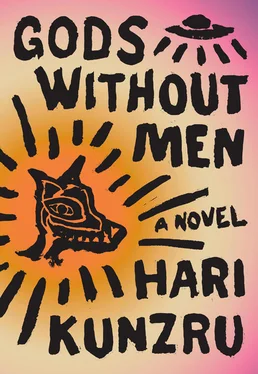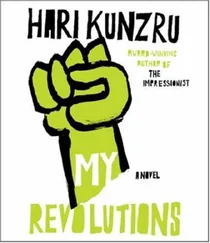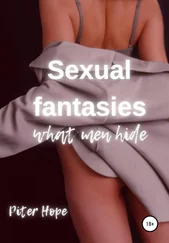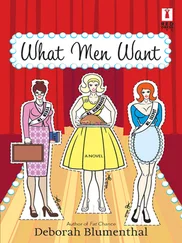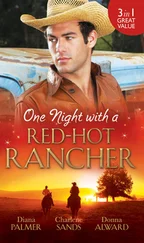As they dressed for dinner, Lisa rhapsodized about their hosts, their culture, their aesthetic sense. “If only you’d told me!” she said.
“Well, I didn’t know. We work together. We talk about work.”
“Oh, come on. You said he took you to see some Wiener Werkstätte silverware.”
“What? Oh, the museum. Yes, that’s right.”
“You must have realized he’s not like the others. Everyone else I’ve met from your firm is like Fenton.”
“Don’t you think it’s kind of strange, Ellis being so much older than Cy?”
“I think it’s beautiful. They fell in love when Cy was in his early twenties. Ellis saw him in the street in Greenwich Village and followed him home. Cy was very handsome and very aloof. Ellis had to woo him. It was like a nineteenth-century courtship — flowers and fans and handwritten notes.”
“How do you even know this? You only met them today.”
“Cy told me.”
“My God, one afternoon and they’re telling you this.”
“You probably never asked. Also — well, Jaz, I realize this is a little out of your comfort zone, but—”
“My comfort zone?”
“You might want to let your guard down a little. They know you belong to me. It’s not like anyone’s going to leap on you and deflower you.”
“What are you talking about?”
“You’ve been rigid with panic all day.”
“I have not.”
“Suit yourself. I just want you to have a good time.”
“Hello? I was the one trying to persuade you to come out here. By the way, have you phoned home in the last five minutes? How’s Bianca coping with Raj?”
“You can be a real prick, you know that.”
“You’re the one accusing me of being homophobic.”
“I didn’t say that.”
“You implied it.”
“Let’s just drop it, Jaz. And stop raising your voice. They can probably hear us downstairs.”
Two other couples joined them for dinner: a hedge-fund manager and his wife, who were renting the house next door, and another gay couple, a well-known artist and his partner, who had a studio in East Hampton. The food was beautiful — Blue Point oysters, a whole fresh salmon, fine wines that Ellis had collected on various trips to Europe. Everyone except Jaz appeared to be enjoying themselves, particularly Lisa, who was radiating a social energy he hadn’t seen in a long time, holding forth to the table about art and books and music, making everyone laugh. On another day, he would have been proud of his wife, overjoyed to see her so happy. Now he just felt sour. The conversation had little to do with finance, though Fenton occasionally tried to turn things back in that direction. The artist described his latest work, which involved artificially distressing thrift-store paintings and mounting the results in wooden boxes. Cy told the story of an acquaintance who’d been conned by a dealer selling fake Joseph Cornells. There was a lot of talk about travel, trips to Italy, Iceland, the Maldives. Only then did Lisa fall silent. It had been a long time since they’d gone on vacation.
Jaz brooded on what Lisa had said upstairs. Could she be right? Was he a bigot? He had to admit he didn’t really understand the way Bachman lived. There was the age difference. Perhaps it was no different from Fenton and Nadia, but Cy as a trophy husband? Surely he was the wealthier of the two? They certainly weren’t a family, not in the way he thought of one. What was the purpose of all this wealth and culture if not to be passed on? Perhaps that was where Chase fitted in. A surrogate son? He wasn’t sure why he’d taken such a dislike to the boy. It had something to do with his poise, the ease with which he carried his good looks. Chase looked somehow invulnerable, golden, as if the Long Island sun had warmed him right through to the marrow. Watching him languorously pour wine and serve salad, Jaz wanted to scream: Get a real job! Stop being a parasite!
Despite the evening breeze, the air on the deck felt close and humid. Jaz mopped the sweat from his forehead with a handkerchief. When the party left the table for liqueurs, Cy and Lisa slipped off to the study. Feeling like a spy — or a jealous husband — Jaz followed them, knowing he was making himself ridiculous, yet still irritated by his wife’s look of surprise as he poked his head around the door. He clasped her proprietorially by the waist as Cy showed off yet more treasures, his collection of early printed books of Jewish mysticism. Here was a text of the Zohar printed in Antwerp in the 1580s. Here was Isaac Luria’s Tree of Life in an eighteenth-century Polish edition.… Cy held the Luria open to a page of diagrams of interconnected circles, like molecules in an organic chemistry textbook. Lisa emitted little oohs and aahs of wonder. It was more than politeness; she seemed moved. Jaz tried to infuse his hug with meaning, hoping to transmit an intimacy he didn’t feel.
“They’re great, aren’t they, darling?” he murmured. She didn’t even nod.
Cy was talking with his usual fevered intensity. “Of course there are so many things I don’t have. I’d love to own a copy of the 1559 Mantua edition of the Zohar . I have a bid in at an auction in Moscow next week for an edition printed in Lublin in 1623. I already have printings from all over, Salonika, Smyrna, Leghorn — such evocative place names, don’t you think? A whole diasporic history.”
“It’s a beautiful collection,” purred Lisa.
“Thank you. It’s always nice to show it to someone who can appreciate it. When you talk about Kabbalah now, people just think you mean Madonna and red strings. Even Jews.”
“Terrible.”
“I’ve been trying to persuade your husband that he’s working in this tradition, but I don’t think he believes me.”
Jaz shrugged, cautiously pleased he was being linked to a topic that impressed his wife. From behind, he couldn’t see Lisa’s expression, but it obviously amused Cy, because he arched an eyebrow and grinned. “How much,” he asked her, “has he told you about Walter?”
“Your computer program? A little. He says you’re making the firm a great deal of money.”
“That’s true enough. But I like to think we’re doing more than that. You know we work with data, Lisa. We’re in the business of comparing disparate things, finding links. For a Kabbalist, the world is made of signs. That’s not some postmodern metaphor — it’s meant literally. The Torah existed before the creation of the world, and all creation emanates from its mystical letters. Of course the modern world is terribly broken. Its perfection has been dispersed. But I like to think that in our small way, by finding connections between all these different kinds of phenomena, Jaz and I and the rest of our team are reading those signs, doing our part to restore what was shattered.”
“What a beautiful way to put it.”
“I’m not sure Jaz thinks so.”
“What? Sure, I think it’s beautiful. I just — well — I prefer to think in more concrete terms.” He trailed off, furious at the look of scorn that flashed across Lisa’s face. Sensing the complicity between them, he was reminded, for the first time since all the crap about circumcising Raj, that his wife was a Jew. This mystical hocus pocus was another thing she had in common with Cy. Absurdly, he felt as if this — this queer —was excluding him deliberately, stealing her away.
He was sweating profusely and couldn’t trust himself not to lose his temper, so he muttered an excuse and went back to the main room. At the bar he poured himself a large vodka, brushed off some bonhomous comment from Fenton and went out onto the deck to drink alone. His head was throbbing. The back of his shirt clung heavily to his skin. What was happening? Was he having a panic attack? He asked himself what he was doing there. He had nothing in common with those people — not really, not deep down. What did he have to stand against all their art and culture, all those books and paintings and bottles of Grand Cru Chablis? He was a single generation away from the village, mud bricks and country liquor and honor killings. He was nothing but a jumped-up peasant.
Читать дальше
